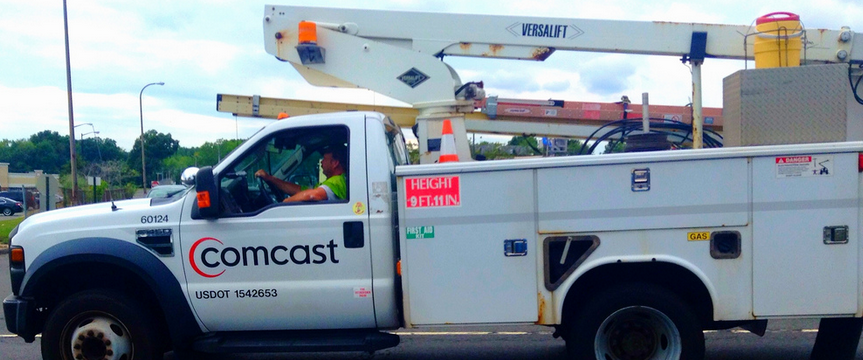Comcast Hopes To Deploy Multi-Gigabit Broadband By 2018
Comcast’s VP of network architecture recently told FierceCable that the testing of new DOCSIS 3.1 tech — which uses existing cable lines rather than requiring the construction of yet another new network — is happening this year with a rollout starting in 2016.
“We want to get it across the footprint very quickly,” he explained. “We’re shooting for two years.”
That would put a hopeful completion date of somewhere in 2018.
While the DOCSIS 3.1 standard allows for speeds of up to 10Gbps, Comcast expects that it will initially launch its offering at 1Gbps — the same speed offered by Google Fiber. After that, the company says will begin to adjust the network to offer advanced features.
The upcoming high-speed service runs over existing cable lines but Comcast’s existing modems are not up to the task of handling the signal. The company plans to start making DOCSIS 3.1 modems available to its customers in early 2016.
The big question mark here is: How much will Comcast charge?
The company isn’t saying right now. Google Fiber only charges $70/month for 1Gbps service, but Comcast’s new 2Gbps fiber service (which is separate from the DOCSIS 3.1 deployment) comes with the super-high price tag of $300/month plus upwards of $1,000 in fees just to install and activate the service. The DOCSIS 3.1 tech won’t require running all new lines, so hopefully Comcast won’t charge as much for access.
Verizon recently tested higher-speed service on its existing FiOS fiberoptic network that could ultimately boost customers’ top speeds from 500Mbps to 10Gbps, and possibly up to 40-80Gbps in the future.
Want more consumer news? Visit our parent organization, Consumer Reports, for the latest on scams, recalls, and other consumer issues.


